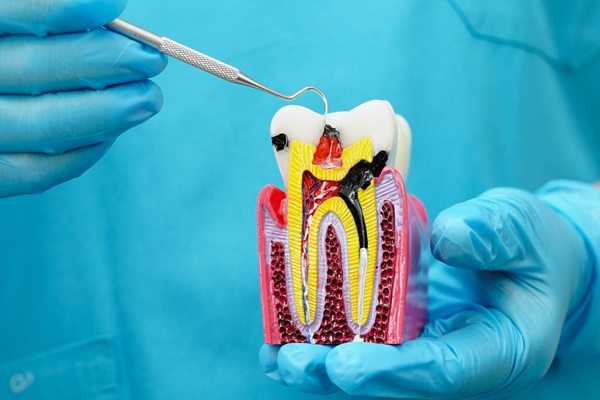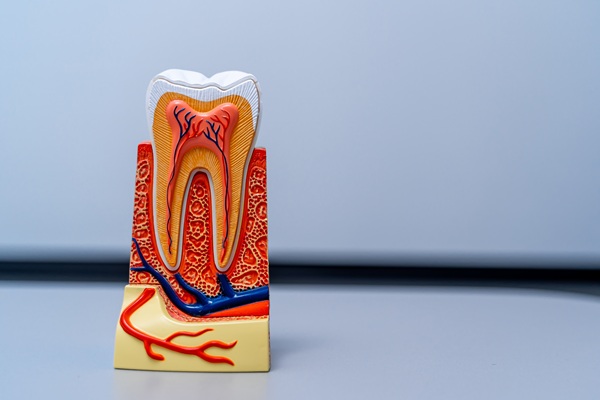3 Tips to Prepare for Root Canal Treatment

Root canal treatment is often the first line of defense for treating teeth with compromised pulp chambers. The pulp chamber is the innermost layer of a tooth, and it stores nerves, blood vessels, and connective tissues. The chamber is sealed off from the rest of the tooth to protect it against bacteria and other irritants in the mouth.
However, tooth decay or trauma to a tooth can expose this area. This drastically increases the risk of the tooth becoming infected because bacteria in the mouth can now access the soft tissues in the pulp chamber. Root canal treatment involves removing these soft tissues and resealing the tooth. A fully developed tooth no longer needs these soft tissues because it can get everything that it needs from the surrounding blood vessels.
Preparing for root canal treatment
There is no need to be apprehensive about a root canal appointment. Many people believe that it is one of the most painful dental procedures, but that is not the reality. Local anesthetics are administered at the start of the root canal procedure, so patients do not feel pain while the dentist works on their tooth. The injection is usually the most pain that patients will feel during the procedure. Topical anesthetics can be used to minimize pain if the patient has a fear of injections.
Once the area being worked on has been numbed, the dentist uses a dental drill to make a hole into the pulp chamber so they can access it. Dental files are used to extract the soft tissues in the pulp chamber and to clean the area.
Afterward, medication is inserted into the hole, and the tooth is sealed with a rubbery material called gutta-percha. The tooth can then be rebuilt with composite bonding or by placing a crown on it. Here is how a patient can prepare for their root canal appointment.
1. Eat a few hours before the procedure
Powerful local anesthetics are used during root canal therapy, and patients might not be able to eat for a few hours after the procedure. Injecting parts of the mouth with a local anesthetic numbs tissues like the tongue, increasing the risk of biting them. Aim to eat a balanced meal about two hours before your appointment. This gives your body the nutrients that it needs to start the recovery process after the procedure is completed.
2. Avoid alcohol
Dentists typically recommend not drinking alcohol for at least 24 hours before your appointment. Alcohol dries out the mouth and increases the risk of complications. It also increases how long it will take to recover from the procedure.
3. Get a full night’s rest
Try to get a full night’s rest before your root canal appointment. This makes it easier for your body to deal with the stress of the procedure, and it can shorten recovery time.
We save teeth
Do you think that you need a root canal? Give us a call or visit our Santa Rosa clinic to set up an appointment with our dentist.
Request an appointment here: https://santarosaendodontics.com or call Santa Rosa Endodontics at (707) 706-2143 for an appointment in our Santa Rosa office.
Check out what others are saying about our dental services on Yelp: Root Canal Treatment in Santa Rosa, CA.
Recent Posts
A root canal can preserve and strengthen a severely damaged or infected tooth. When seeing a root canal dentist, asking informed questions can provide clarity, ease concerns, and improve treatment outcomes. Understanding the procedure helps make the experience more comfortable and ensures you are well-prepared for each step.While each patient's situation is unique, the following…
A person might need to see an endodontist for a wide variety of problems, mainly relating to how they can save patients’ teeth. All endodontists are dentists because they have completed dental school, but they do two more years of specialized study in the techniques used to preserve a person’s dentition. So, if you are…
When a root canal fails, a root canal retreatment must happen. Getting a root canal treatment is better than a dental extraction. If an endodontist sees that your tooth still has good bone support and healthy gums under or around it, a root canal can save the tooth. A root canal is a less expensive…
Tooth pain and dental trauma can be distressing and require immediate attention to prevent further damage and alleviate discomfort. An emergency endodontist specializes in diagnosing and treating severe tooth pain and trauma, offering expert care to save a tooth, relieve pain, and protect long-term oral health. When sudden tooth pain or injury strikes, seeking help…


